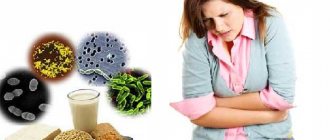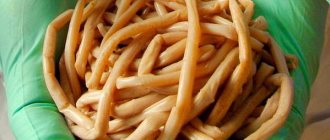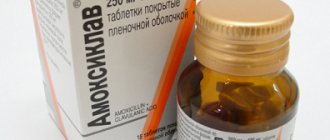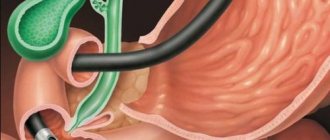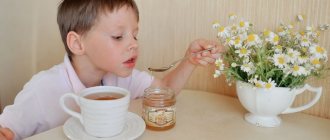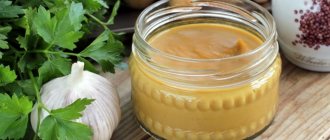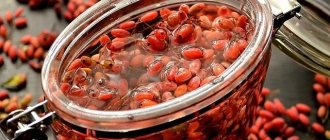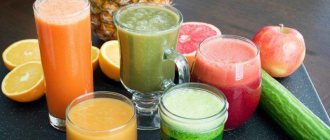Due to incomplete development, a child’s body is often susceptible to attacks from intestinal infections. As a result, the baby has diarrhea, vomiting, and elevated body temperature. For young children, diarrhea is dangerous due to dehydration. It is possible to cope with the symptom at home. If the parent knows the cause of diarrhea, the case does not imply serious damage to internal organs, it is permissible to take the advice of a natural pharmacy.
The fight against intestinal infections in traditional medicine occurs with the help of antibiotics. They cope with the first ailment, but become a source of the second - dysbiosis. Not only the child’s body suffers from microflora disturbances, but also adults. In a natural pharmacy you will find effective recipes to combat pathogenic bacteria without side effects.
But even for the use of folk remedies, rules have been developed. When treating children under 1 year of age, the dosage must be observed. Medicinal herbs can cause complications or allergies. The age of the child is taken into account when choosing a natural recipe. For children over 2 years old, use alcohol tinctures, first diluting them with water. First aid for diarrhea for children of any age is Regidron, a drug that helps replenish electrolytes and salts.
Decoctions
To prepare decoctions for diarrhea, use: rice, oak bark, pomegranate peels, tea leaves. These are affordable ingredients that are easy to find in a pharmacy or kitchen.
Congee
Take round, peeled rice, add it to water and cook until tender. Proportions: 500 ml of water for 2 teaspoons of cereal. No salt is added. Pour the finished broth into a separate container and let cool. The cooking methods are different, but the result is important. The consistency should be slightly viscous, the color should be cloudy white.
Dosage:
- Up to 1 year. 3-4 tablespoons per day.
- 1-3 years. A quarter glass 3 times a day.
- Over 3 years old. 0.5 cups 3 times a day.
With the help of rice water, diarrhea is stopped for 2-3 days. The product is completely safe. If necessary, doctors prescribe it for diarrhea to pregnant women and nursing mothers.
Walnut shell
Walnuts contain substances that have a bactericidal effect. Iodine, which is part of the nut shell, destroys pathogens. This is an indispensable remedy for chronic diarrhea.
The partitions are removed from the shell (a decoction is prepared from them), crushed and filled with water. The product is prepared at the rate of 2 teaspoons of partitions per 2 glasses of water. Boil the mixture over low heat for no more than 30 minutes. Then remove from heat, cover with a lid and let it brew for 2 hours.
Take 1 tablespoon of the decoction 3-4 times a day until symptoms disappear. Sometimes allergic reactions to the product occur.
Oak bark
Pharmacies sell oak bark in dry form and in the form of a ready-made tincture. Both remedies are used to get rid of diarrhea.
Oak bark contains substances:
- Tanning;
- Catechins;
- Pentosans;
- Pectins;
- Flavonoids;
- Proteins;
- Starch and sugar.
In the intestines, the product actively fights pathogenic microorganisms and parasites that provoke digestive system disorders in a child. It is prohibited to use any medicine containing oak bark for children under 2 years of age - the substances included in the drug are not tolerated by the child's body!
For diarrhea, the prepared infusion is diluted with warm water and an enema is given.
Make the infusion yourself: 1 tablespoon of the dry ingredient is added to a glass of boiled hot water. After 40 minutes the product is ready. The medicine is taken 1 teaspoon every 30 minutes. Its use is permitted for children over 12 years of age.
For an enema, prepare an infusion in a thermos: 0.5 liters of water, 1 tsp. chamomile and oak. Half an hour - and the medicine is ready. Apply after cooling.
Pomegranate peels
Pomegranate peels in medicines have an antibacterial effect and destroy microbes. Dry peels are used.
Take 10 grams of dry ingredient and pour a glass of boiling water. Infuse for 40 minutes. Dosage for a child 6-7 years old: 2-3 teaspoons, depending on the course of the disease, 3-4 times a day. Pomegranate contains tannins that help stop diarrhea in 1-2 days.
Medications
A specific antidiarrhea remedy for children and other medications are chosen by the doctor based on the characteristics of each individual clinical case. Depending on the causes of diarrhea and accompanying symptoms, the following groups of medications may be prescribed:
- antibiotics.
These drugs are prescribed for diarrhea caused by a bacterial infection, and are selected exclusively individually, taking into account the sensitivity of bacteria to a particular antibacterial drug; - rehydrating agents.
Their action is aimed at replenishing the deficiency of fluid and salts, which are lost in large quantities by the body during diarrhea. Taking these medications is mandatory if severe or prolonged diarrhea has developed, or signs of dehydration are observed with diarrhea; - symptomatic drugs.
With diarrhea, depending on its causes, an increase in body temperature, nausea, vomiting, and flatulence may occur. To eliminate such manifestations of the disease, appropriate drugs are prescribed - antipyretics, antiemetics, carminatives, etc.; - antidiarrheal drugs.
Such drugs are very important in the complex treatment of diarrhea, as they can reduce intestinal motility and slow down the movement of feces through it. Thanks to this, the frequency of the urge to defecate is reduced, and, as a result, the loss of water and salts, vital for the human body, is reduced.
Berries
Eating fresh and dried berries helps cope with intestinal upset.
Blueberry
Blueberries contain minerals and vitamins that are beneficial to the human body. To combat diarrhea, the berry contains tannins and vitamin C. Elements that help destroy pathogenic bacteria, strengthen blood vessels, relieve anemia of organs - this allows you to cope with the disease and treat the intestines.
It has been noted that fresh berries have laxative properties. Dried blueberries are used to combat diarrhea. The prepared medicine is used to prepare jelly, decoctions, or simply eat it.
A decoction is prepared from crushed dried berries: pour 50 g into 300 ml of water, simmer over low heat for 30 minutes. Strain. Children are given half a glass 3 times a day.
New recipe: 1 tablespoon of dried flowers is poured into 2 cups of boiling water and placed in a water bath. Wait until half the volume evaporates. Consumed warm, 4 times a day before meals.
Hawthorn
Hawthorn is known for its medicinal properties in the fight against bacterial infections. The berries of the bush have the ability to stop the proliferation of pathogenic microorganisms in the intestinal tract.
The astringent properties of hawthorn help stop diarrhea, remove toxins from the child's body, while replenishing the lack of vitamins and microelements lost during intense bowel movements.
Recipe: 5 g of fruits are poured into 1 glass of hot water. Boil for 10 minutes. Give your child 1 tablespoon before meals.
Sea buckthorn
Not only the berries of the bush, but also its branches are used as medicines. Contains vitamins C, B1, B2, tannins, phytoncides, flavonoids.
Preparation of the decoction: 3 tbsp. spoons of sea buckthorn berries are poured into 0.5 liters of hot water. Place on low heat and boil for 10 minutes, filter. Offer it to your child instead of tea.
Cranberry
Cranberry contains:
- Vitamins included in group B. Have a positive effect on the functioning of the central nervous system and digestive system. Participate in the process of hematopoiesis.
- Vitamin E. Takes part in digestion, promotes the absorption of vitamin A, prevents anemia, and saturates tissues with oxygen.
- Vitamin PP, acids, sucrose.
- Pectins. Substances that regulate intestinal activity.
Cranberries fight pathogenic bacteria thanks to their disinfectant properties.
Recipe: take 2 tablespoons of berries, knead and pour 2 glasses of hot water. After cooling, the medicine is ready for use.
Treatment of diarrhea in children with IMODIUM® Express
The drug IMODIUM® Express can be used for independent and complex treatment of diarrhea in children starting from 6 years of age. Its active ingredient, loperamide, allows you to normalize intestinal motor function, improve the absorption of water and salts by its walls, and also reduce the release of water into the intestinal lumen. This complex action helps normalize stool frequency and consistency, as well as reduce the risk of dehydration. Before using IMODIUM® Express, be sure to read the instructions for the drug.
Herbal infusions
It is not always acceptable to offer a child folk remedies in the form of berries or a tasteless decoction of oak bark or pomegranate. You can prepare delicious homemade decoctions from medicinal herbs that will help treat and calm your child during a difficult period.
Mint
Mint leaves contain a disinfectant that helps fight inflammation. It is suitable for treating intestinal disorders caused by stress. Peppermint tea soothes and removes toxins from the child's body.
Chamomile
Chamomile has antibacterial properties, stops the proliferation of pathogenic microorganisms, helps reduce bowel movements and spasmodic phenomena in the baby. Reduces the release of gases in the abdomen, removes the symptoms of intestinal colic.
It’s easy to prepare a decoction: 1 tablespoon of herbs and a glass of boiling water. Mix and cover for 1 hour. The concentration of the decoction should correspond to the age of the child. The younger the baby, the weaker the medicine is.
Caraway
An infusion of caraway seeds is used for indigestion in children under 1 year of age. This occurs due to unformed organs of the digestive system and insufficient production of necessary enzymes.
Preparation of infusion: you will need 1 teaspoon of seeds. Pour boiling water over. After cooling, strain. Take 1 tablespoon 3 times a day.
Treatment at home
To treat diarrhea in children at home, emphasis should be placed on auxiliary methods that will not harm the child’s health and at the same time will help his body recover faster.
- Monitoring compliance with the correct drinking regime.
Dehydration is the most likely and dangerous threat that occurs with diarrhea. Therefore, you should provide your child with a sufficient amount of clean non-carbonated water, diluted juices, weak tea, herbal infusions, dried fruit compotes, etc., and let him drink often, but little by little. It is also necessary to ensure that the drink is warm (not hot or cold!), so that it is easier to digest and does not lead to stimulation of intestinal motility (the same applies to food). - Organization of proper nutrition and diet.
Frequent meals (5-6 times a day) in small portions will help not burden the gastrointestinal tract and at the same time ensure the supply of all necessary nutrients. Fatty, fried, spicy, salty, smoked foods, carbonated drinks, sweets and baked goods, as well as vegetables and fruits in any form should be excluded from the diet. Preference should be given to easily digestible foods and dishes - boiled meat and fish, pureed porridge made from oats, buckwheat or rice, cereal soups made from these grains, low-fat cottage cheese, hard-boiled eggs (in limited quantities). Vegetables, berries and fruits can be introduced into a child’s diet only in the form of decoctions from them.
Home treatment methods must be supplemented with prescriptions from a specialist - medications will help eliminate the cause of diarrhea and other symptoms that accompany it. When choosing folk remedies for diarrhea, it is imperative to coordinate their use with your doctor.
Fruits
Folk remedies are contained in a lot of recipes that help quickly cure gastrointestinal disorders in young patients. Unlike medications, there is no harm to the child’s body.
wild pear
A medicine based on wild pear fruits is suitable for the treatment of incessant diarrhea, in the absence of effect from other remedies. Suitable for use by children over 1 year of age and adults.
You will need 2 wild pears (ripe fruits) and 3 tablespoons of oats (it is advisable to take whole grains, if not, replace with Hercules), boil in 0.5 liters of water for 20 minutes. Then wrap it in a blanket for 1 hour. After straining, take 100 g before meals, 3-4 times a day.
Beverages
First aid for a child with diarrhea is to stop the flow of feces so that the body does not lose moisture, vitamins, and microelements. During this period, doctors advise drinking plenty of fluids. Drinks used to fulfill specified purposes contain antibacterial and tannins. The former stop diarrhea by fastening and forming feces, the latter destroy harmful microorganisms.
Black tea
To combat diarrhea, leaf teas containing tannins are used. Brew a strong concentrated drink without sugar. Take until symptoms disappear. For young children, try not to brew the tea too strong.
Lemon drink
Lemon contains an increased amount of vitamin C and citric acid, which help disinfect the body and suppress the activity of pathogenic bacteria. With the help of this drink, your baby can easily cope with diarrhea.
The composition of the drug includes biologically active substances that have a positive effect on the mucous membrane of the digestive tract.
Add a few drops of lemon juice and a teaspoon of honey to a glass of water. The product will help against diarrhea and restore the child’s body after dehydration.
Diet
An important factor during the period of illness is the child’s nutrition. It is required to follow a certain diet, helping the body to effectively resist the disease.
For diarrhea:
- Every parent should take measures to restore the child's water balance.
- Food is served to the baby in small portions, often.
- When the condition improves, they switch to foods that are easily digestible by the digestive tract. You need to monitor the condition and reaction of the body. Avoid foods that cause intestinal irritation.
- The transition to dietary food is gradually being made. The menu is selected individually for each child, depending on the age and stage of the disease.
